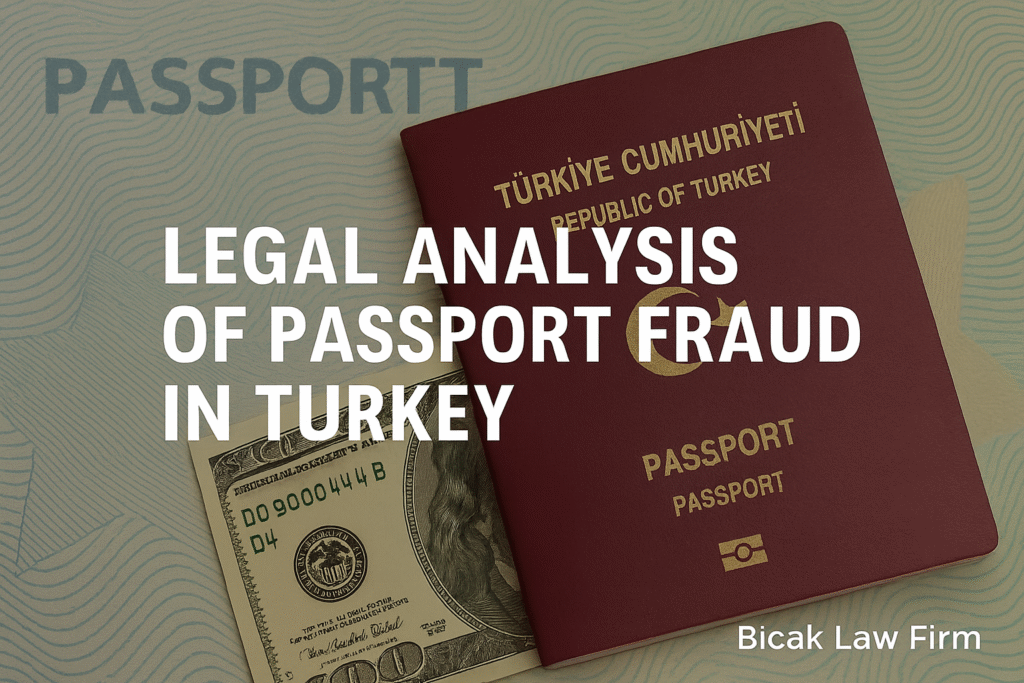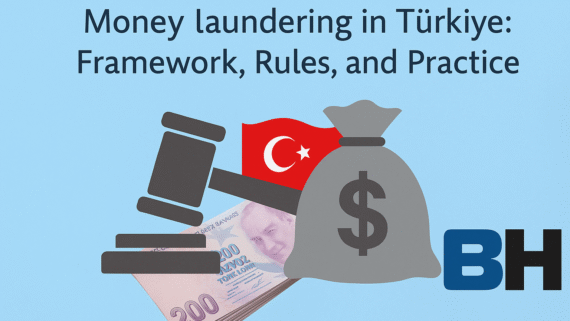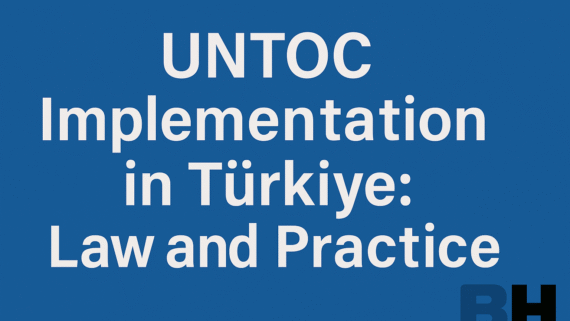Passport forgery remains a significant security issue in Turkey despite the country’s use of modern biometric passports. Criminal networks target Turkish passports because of Turkey’s geographic position and the mobility advantages associated with certain passport types, especially the green passport. Forgery methods include full counterfeiting, data page replacement, the use of lost or stolen passports, and obtaining genuine passports with fake identity documents. Some misuse also occurs through unlawful access to service or diplomatic passport procedures. Turkish authorities have strengthened border controls with biometric verification, document scanners and international data-sharing systems. Service passport issuance procedures have been tightened following past misuse incidents. Passport forgery carries serious criminal penalties under Turkish law, including imprisonment and, for foreigners, deportation and entry bans. The Constitutional Court emphasises that restrictions on passport rights must be lawful, proportionate and individually justified. While Turkey’s passport system is technologically advanced, criminal groups continually adapt their methods. Ongoing improvements in identity verification, legislation and administrative coordination remain essential to protect the integrity of Turkish passports.
Legal Analysis of Passport Fraud in Turkey
Passport forgery remains one of the most significant challenges for border security and public order in Turkey. Although Turkish passports are produced with modern biometric technology and comply with international security standards, forged or fraudulently obtained passports continue to appear in criminal investigations, human-smuggling cases and illegal border-crossing attempts. Turkey’s geographical position, lying between regions with high migration pressure and the European Union, makes the country a focal point for organised criminal groups engaged in document fraud. Recent law-enforcement operations illustrate that passport forgery is not an abstract risk but an active and evolving criminal practice. This article provides a comprehensive analysis of how passport forgery occurs in Turkey, which passport types are targeted, the legal consequences of these offences, and the measures adopted by Turkish authorities to combat the problem.
Types of Passports Targeted
Turkey issues six legally distinct passport types: ordinary, special, service, diplomatic, temporary, and passports for foreigners. Each type serves a different purpose and offers different levels of international mobility. Because each category carries a different legal value, the incentives for forgery also vary. Ordinary passports are the most common and therefore the most frequently misused. Special passports, which allow visa-free access to the Schengen Area, are highly attractive to individuals seeking irregular entry into Europe. Service passports have also been misused in past incidents, where individuals gained unlawful entry into foreign countries by falsely joining official delegations. Diplomatic passports, although tightly controlled, can become targets due to the privileges and facilitated mobility they provide. Temporary passports issued by consulates serve limited emergency purposes but forged versions occasionally appear where individuals attempt to fabricate emergency travel status. Passports issued to foreigners under exceptional circumstances may also be exploited when applicants present false identity information to migration authorities.
Methods of Passport Forgery
The methods used to forge passports in Turkey can be grouped into several categories, although each category includes techniques that evolve over time.
Full counterfeiting is the most direct method, where criminal groups manufacture an entirely fake passport booklet using advanced printers, imitation holograms and laser-engraving tools. These forged documents may appear convincing but usually fail biometric or chip-reading verification at borders.
Data-page replacement involves taking an original passport booklet and substituting the identity page with falsified information. Because the physical structure of the passport remains genuine, this method is more difficult to detect.
Misuse of lost or stolen passports continues to pose a risk. If a passport is not reported promptly or not yet invalidated in the national system, it may be altered and sold in illicit markets.
Fraudulent acquisition of genuine passports involves the use of forged identity cards, birth certificates or impersonation. Because the resulting passport is genuine, this method presents one of the most serious threats to border integrity.
Some individuals attempt to misuse service or diplomatic passport procedures by unlawfully securing inclusion on official travel lists or obtaining improperly authorised delegation documents. This form of passport abuse does not always involve document alteration but can undermine trust in official travel documents.
Press-Reported Criminal Operations
Multiple recent operations confirm the scale and sophistication of passport forgery networks in Turkey.
In February 2025, an Istanbul police operation revealed a major forgery workshop run by foreign-national suspects. Authorities seized thousands of identity cards, passport chips, holograms, and blank passport pages, showing that counterfeiters possessed both raw materials and production capacity at an industrial level.
In May 2025, another Istanbul operation uncovered 372 forged or altered passports, 1,500 blank passport booklets, 2,300 cover pages, and various foreign identity documents and visa sheets. The volume of seized materials demonstrated a structured supply chain capable of producing multiple types of fraudulent travel documents.
Earlier cases reinforce these findings. In June 2023, investigators detected forged passports being shipped abroad through cargo companies, showing how forged Turkish passports can enter international circulation. The grey-passport scandal also revealed systemic misuse of service passports for irregular migration purposes. A separate 2025 investigation into citizenship-by-investment fraud uncovered falsified foreign passports and identity documents used in real-estate schemes, highlighting the connection between document fraud and economic exploitation. In another well-known case from 2017, counterfeit passports were sold to individuals linked to terrorist activities and illegal migration routes.
These cases illustrate that passport forgery in Turkey is not an isolated practice but part of a broader criminal ecosystem involving migration networks, identity fraud, financial exploitation and security risks.
Actors Involved in Passport Forgery
The actors involved in passport forgery are diverse. Human-smuggling organisations often use forged passports to transport migrants across borders. Document-forgery workshops operate as commercial enterprises, selling counterfeit passports, visas and identity cards. International criminal networks use forged passports to support money laundering, movement of fugitives or transnational organised crime. Individuals with criminal records may attempt to change their identities, while foreign nationals seeking entry into Europe may purchase forged Turkish passports due to their perceived reliability. Police operations in Istanbul and Ankara have uncovered sophisticated facilities equipped with professional-grade printing tools, hologram sheets and biometric-style photography equipment.
State Measures Against Passport Forgery
In response, Turkish authorities have adopted a wide range of security measures. Since 2010, all Turkish passports have been biometric. The polycarbonate data page, laser-engraved photograph, micro-text features, ultraviolet security layers and embedded electronic chip significantly reduce forgery potential. At border gates, automated systems match live biometric data with information stored in the passport chip. Border police use document scanners capable of identifying page replacement, laminate removal and other signs of tampering. Turkey participates in international information-sharing networks, enabling real-time verification of lost, stolen or invalidated passports. After misuse of service passports, stricter institutional approvals and audit mechanisms were introduced. Turkish consulates now require more robust identity checks before issuing temporary passports.
Legal Consequences
The legal consequences of passport forgery in Turkey are severe. Under the Turkish Penal Code, forging an official document or using a forged document are criminal offences punishable by imprisonment. The fraudulent acquisition of a genuine passport also constitutes an offence. These crimes often intersect with other offences such as facilitating irregular migration, human trafficking or participating in a criminal organisation. Foreign nationals who use forged passports face criminal prosecution, administrative detention, deportation and long-term entry bans. The seriousness of these penalties reflects the harm caused by document fraud not only to national security but also to international trust in Turkish travel documents.
Judicial Interpretation: Yargıtay Case Law on Passport Alteration
A significant judicial perspective on passport alteration comes from a 2023 decision of the 11th Criminal Chamber of the Court of Cassation (Yargıtay). In this case, the court examined whether replacing the original photograph in a genuine foreign passport with another person’s photograph constituted the crime of falsifying an official document or damaging, destroying, or concealing an official document under Turkish law (Yargıtay 11th Criminal Chamber, 22 March 2023, E. 2019/6730, K. 2023/1867). The incident began when several identity cards and a foreign passport were found inside an apartment that had been entered without the knowledge of its owner. Forensic analysis concluded that two identity cards were entirely counterfeit, while the passport – originally issued by Azerbaijan – was genuine but had been altered by affixing a new photograph over the original printed image. Crucially, forensic experts stated that none of the documents had deceptive power, meaning they were not capable of misleading authorities or the general public.
The first-instance court acquitted the defendant of falsifying an official document due to lack of deceptive capability but convicted him for damaging an official document on the grounds that the photograph replacement impaired the integrity of the document. On appeal, however, Yargıtay held that the offence of damaging an official document is only established when the alteration prevents the rightful holder from using the document or permanently destroys its evidentiary function. In this case, the altered passport still allowed the rightful owner to obtain a new one upon request, meaning its essential legal function was not impaired. Therefore, the legal elements of Article 205 were not met. The court also reaffirmed that only alterations with deceptive capability fall within the scope of Article 204 regarding falsifying an official document. Since both the forensic report and the trial court accepted that the altered passport lacked deceptive power, Yargıtay overturned the conviction.
This judgment demonstrates that not every modification to a passport constitutes forgery or criminal alteration. Turkish criminal law requires not only a physical change to the document but also deceptive capability or substantial impairment of the document’s use. The decision clarifies the limits of criminal liability in passport cases and reinforces the principle that deception, intent and practical consequences determine whether a passport-related alteration constitutes a criminal act.
Constitutional Considerations
Any discussion of passport control must also consider the constitutional right to leave the country, protected by Article 23 of the Constitution. Passports are the mechanism through which this right is exercised. Restrictions must therefore be lawful, proportionate and based on individual circumstances. The Constitutional Court has ruled that blanket or automatic limitations violate fundamental rights. Measures to combat passport forgery must maintain a balance between public security and personal freedoms.
Conclusion
Turkey’s passport system is technologically advanced and internationally recognised. Nevertheless, the risk of forgery persists because criminal actors continuously adapt their methods. Strengthening identity verification for first-time applicants, modernising the Passport Law to reflect technological progress, improving inter-agency coordination and raising public awareness about reporting lost or stolen passports can further enhance system integrity. Protecting the passport system is essential not only for national security but also for safeguarding international mobility and the rights of Turkish citizens.
 English
English Türkçe
Türkçe Français
Français Deutsch
Deutsch










Comments
No comments yet.